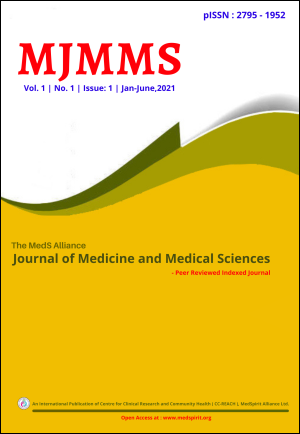Effectiveness of Educational Intervention on Knowledge Regarding Child Abuse among School Students in a Sub-Metropolitan City
DOI:
https://doi.org/10.3126/mjmms.v1i1.42949Keywords:
Child abuse, educational intervention, knowledgeAbstract
INTRODUCTION: Child abuse or maltreatment constitutes all forms of physical and/or emotional ill-treatment resulting in actual or potential harm to the child’s health, survival, development. The objective was focused to measure the effectiveness of educational intervention on knowledge regarding child abuse among school students at Janakpurdham, submetropolitan city.
MATERIALS AND METHODS: This study was conducted in Janaki higher secondary english school, at Janakpurdham, Dhanusha. One group pre-test and post-test design was used. A self- administered structured questionnaire was developed to assess the knowledge regarding child abuse among participants. Differential and inferential statistics were used to analyse data by SPSS package.
RESULTS: Out of total 44 participants, 12 (27.3%) participants had poor level of knowledge in pre-test whereas none had poor knowledge in post-test. 25 (56.8%) participants had average level of knowledge in pre-test but only 15 (34.1%) had average level in post- test. 7 (15.9%) participants had good level of knowledge in pre-test, however 29 (65.9%) had good level of knowledge in post-test. The scores of pre-test 18.80 (3.87) and post-test 24.23 (2.78) were found to be statistically significant. There was no any association between level of knowledge in pre-test and post-test with their selected socio-demographic variables except sex, education status of mother and occupation of father in post-test.
CONCLUSIONS: Majority of participants had average level of knowledge in pre-test that was increased to good knowledge in post-test. The scores of pre-test and post-test were found to be statistically significant which determined the effectiveness of educational intervention programme.
Downloads
Downloads
Published
How to Cite
Issue
Section
License
Copyright (c) 2021 Reena Ishwar, Dilip Kumar Ishwar, Punita Yadav

This work is licensed under a Creative Commons Attribution-NonCommercial 4.0 International License.




